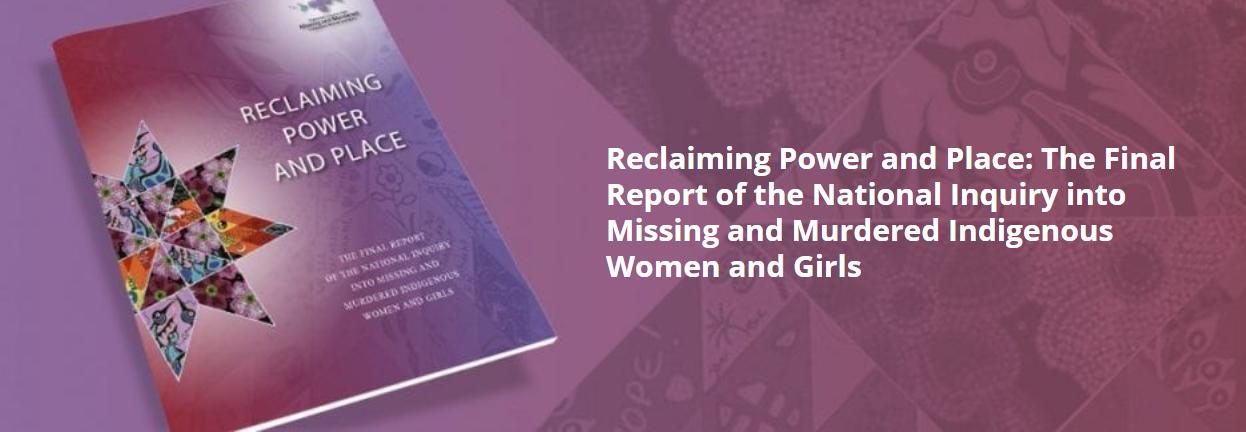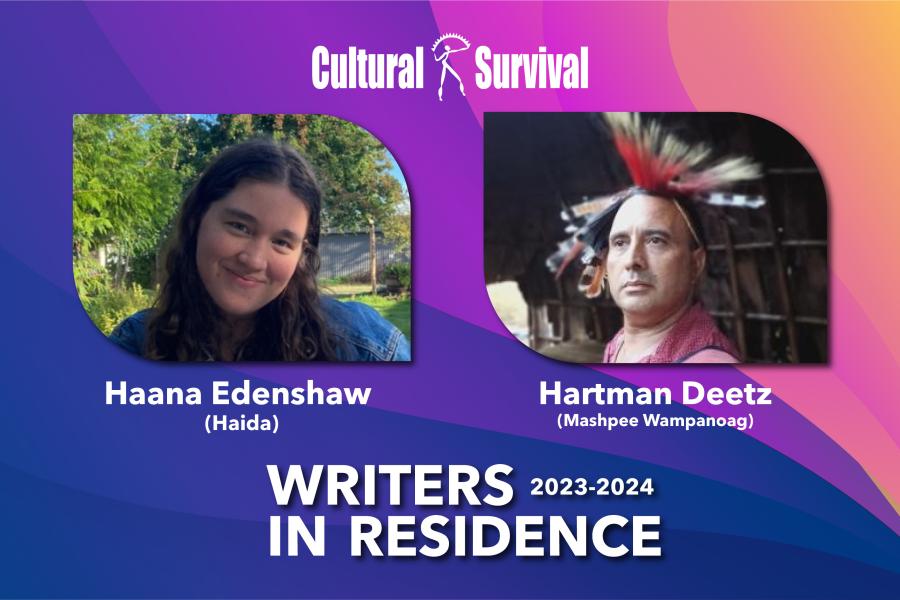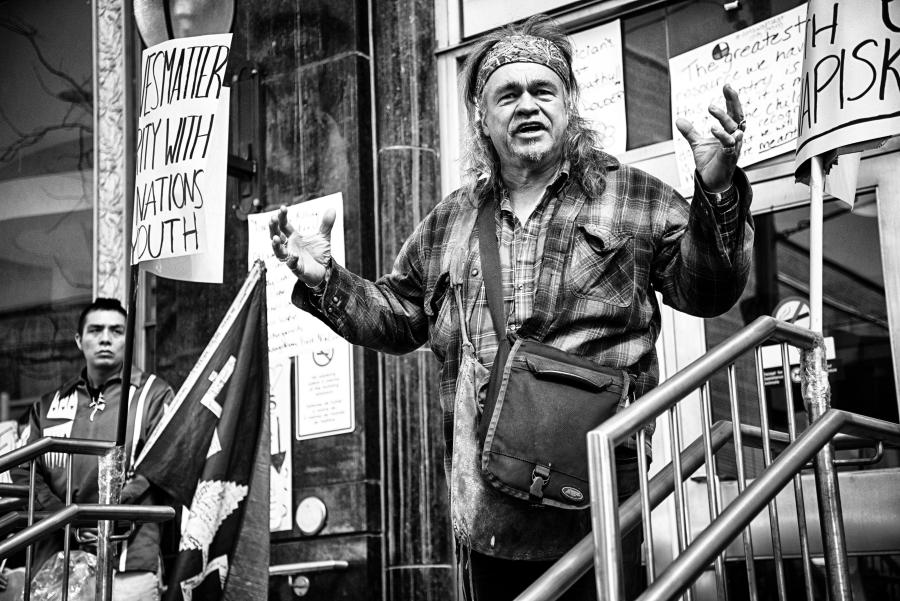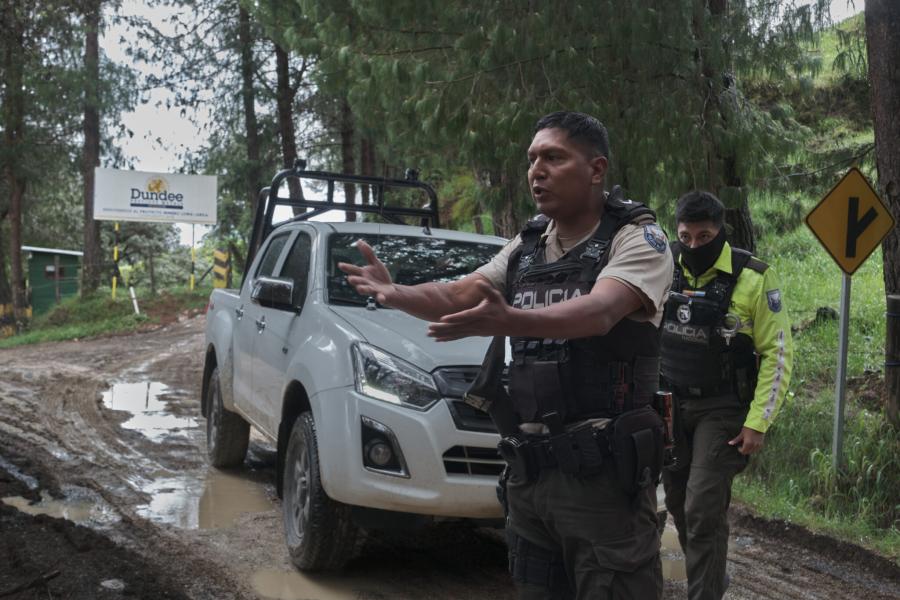
Canada’s rates of violence against Indigenous women, girls, and LGBTQ+ people “amounts to genocide,” according to a report released in June 2019 by the National Inquiry into Missing and Murdered Indigenous Women and Girls. Entitled “Reclaiming Power and Place,” the final report is the result of an evidence-gathering process that involved cross-country public hearings, guided dialogues, and testimonies. The final product consists of 2,380 testimonies from survivors and loved ones of missing and murdered girls, women, and LGBTQ+ people, as well as 231 calls for justice.
The Canadian government mandated the investigation in 2016 to examine “all forms of violence” against First Nations, Métis, and Inuit Peoples, broadening the analysis to incorporate issues like sexual, familial, and institutional violence. The National Inquiry also chose to include queer and gender-diverse individuals in the research. The final report is broken into four sections: creating a new framework for understanding gender-based violence, tackling the main forms of oppression faced by Indigenous Peoples, finding and understanding healing, and finally establishing calls for justice.
Part One of the “truth-gathering process” consisted of community hearings in which family and friends of victims, as well as survivors of violence, were able to either publicly or privately share and express their experiences. It looks at the different levels in which violence can occur and be responded to, ranging from institutions to individual relationships.
The report starts by focusing on the significance of personal relationships in understanding and ending violence, which works in unity with First Nations, Métis, and Inuit worldviews: “we are each our own person, but we are also defined by our relationships to others.” Based on testimonies, the findings of the report argue that personal relationships often create key “encounters” that may shape families, communities, and individuals. These encounters generally have the power to create healing or harm – either reconciling or perpetuating violence against Indigenous women, girls, and LGBTQ+ people. These transformative encounters have the potential to provide support for at-risk individuals or they can further trap them in a violent situation, which gives new weight to the impact of individuals on gender-based violence.
In the following two chapters, the report discusses the effectiveness of Indigenous law and Canadian law in protecting women. It also notes that while Indigenous rights are human rights, it is also vital to differentiate the two in order to avoid obstructing some rights of Indigenous women while trying to uphold others.
Participants in the investigation also spoke about historical colonization because so many survivors and people touched by violence use this context to make meaning of their experiences. Many colonial doctrines and socialization erased the First Nations, Métis, and Inuit understandings of women’s societal roles, dismissing female leadership and binding women’s status to their husbands. These changes paved the way for today’s institutionalized forms of violence against Indigenous women and gender-diverse people.
While the first section of the report was testimonial and based off the first-hand experiences of victims and their family members, the second and third parts relied on the knowledge and recommendations of elders, specialists, and front-line workers. This part assesses the structural causes and responses to violence against women and LGBTQ+ people, while also considering potential solutions. To accomplish this, the National Inquiry focuses on four main forms of oppression they believe to be most harmful to Indigenous Canadians: violation of rights to culture, health, security, and justice.
First looking at culture rights violations, many testifiers pointed to the Indian Act of 1876 as a disruption of Indigenous family structure which consequently impacted the transmission of culture and language, as well as the status of women, girls, and LGBTQ+ people. Also mentioned were forms of family separation such as the mass-placement of Indigenous children into the foster care system, known as the Sixties Scoop, which heavily impacted First Nations, Métis, and Inuit Peoples’ abilities to pass on culture to future generations.
In its segment on health, the report considers violence, intergenerational trauma, and socioeconomic disparities as major health concerns among First Nations, Métis, and Inuit Peoples. Additionally, Canada’s “universal” healthcare seems to be failing many Indigenous people and often ignores or excludes Indigenous health and healing models.
Testifiers spoke to the normalization of lacking security within their communities from birth or early childhood and onward. Many families and friends of missing or murdered girls and women noted that low socioeconomic status was often to blame for creating situations of violence, and institutions were typically unwilling to help victims escape these circumstances. It was found that most of the shortcomings were related to an absence of culturally relevant services and training, specifically on trauma.
Individuals who spoke about Canada’s justice system said that many First Nations, Métis, and Inuit Peoples who face violence are reluctant to reach out to officials due to cultural insensitivity, victim blaming, or total disregard of their claims. All of these failings seem to be enhanced when women, girls, or LGBTQ+ people are involved in violence, further intensifying trauma and mistrust in relation to the justice system.
In the Section Three, the National Inquiry investigated healing processes, and found that many survivors and people touched by violence found strength in family and community, embracing Indigenous identity, and engaging in traditional spirituality through ceremonies. A guided dialogue was held with front-line workers which yielded discussion on intersectionality, valuing holistic wellness, and constructing trusting relationships between individuals and service providers.
The remainder of the report is dedicated to the calls for justice, which are directed toward individuals, institutions, and governments as means to end genocide and colonial violence. The National Inquiry observed that previous reports have produced few measurable changes and stated that these proposals are “legal imperatives.”
The calls for justice are directed at governments and include recommendations on health, security, justice, and culture, but they also address a huge range of other actors, including educators, extractive industries, social media influencers, and all Canadians.



